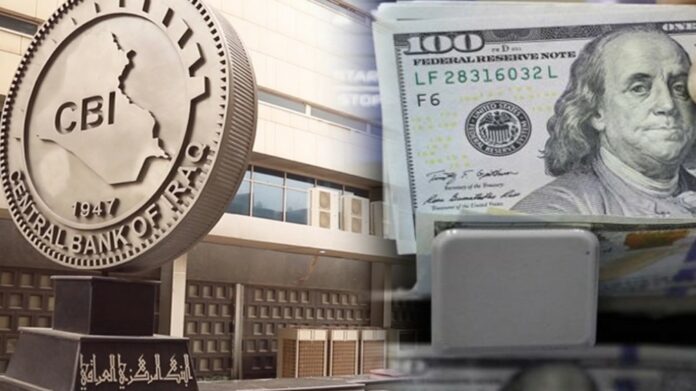Years of wars and economic sanctions were precursors to making the Iraqi monetary system captive to the wills of international parties, rather than to local necessities, forcing the Iraqi decision-maker to succumb to international dictates to maintain local stability.
The postponement of closing the currency auction at the Central Bank, after the first few years of its opening due to a temporary circumstance, contributed to exacerbating the monetary crisis in Iraq. The purpose of societal stability was the driving force behind the opening of the currency auction, and it was imperative for the authorities to work on closing it to create a state of monetary cohesion in Iraq.
Decisions by the US Treasury Department, along with international bodies’ decisions, especially after 2003, strongly pressured towards reducing any chance of diversifying the national currency basket, leading Iraq to follow reactive policies in its monetary strategies.
Sanctions affected 32 private banks in Iraq, constituting 43.2% of the total private banks in the country. The regulatory rules of the US Treasury Department allow for the removal of these banks from the sanctions list if they provide necessary information or follow the prescribed approach by the Treasury Department, placing the full responsibility on the Iraqi government to negotiate on behalf of the entities affected by sanctions.
Tightening procedures, monitoring, and auditing of current banks, or those that may be established in the future, are necessary as reliance on electronic platforms for transaction verification and automatic stopping issued by these platforms is not sufficient. Many transactions cannot be discovered quickly enough, or there may be new and modern means of fraud against these platforms or the Central Bank, potentially leading to new problems for the Central Bank and Iraq. Prices are a reflection of market rumors, leading to sudden price increases as a result of any sanctions imposed on an Iraqi bank or company.
Attempting to agree with countries that have trade relations with Iraq to use their local currencies to overcome the dollar shortage crisis, or to reduce pressure on the electronic platform, and limit the use and circulation of the dollar to countries with which there are no significant trade relations.
Working steadfastly to fully and finally remove Iraq from Chapter VII and end the international and American guardianship controlling the country’s fate.
TOPICS Domestic and foreign policy The American Sanctions on Banks and Financial Companies and Their Effects on...
The American Sanctions on Banks and Financial Companies and Their Effects on The Monetary Stability of Iraq
Prof. Dr. Wejdan Falih Hasan / College of Political Science – University of Maysan.










